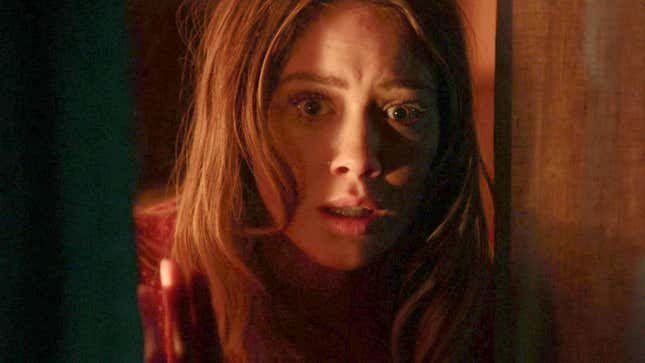

What if the Manson Family and quantum physics collided? What if reality as we know it is just one thread in a tapestry of timelines that play out what would have happened if different decisions were made, alternate routes taken? What if fate is for quitters? What if Sharon Tate fought back the night of August 9, 1969, when she and four others were killed by members of Manson’s cult in the Benedict Canyon home she was renting?
Answers to these questions—or attempts at answers, at least—can be found in writer/director Daniel Farrands’s goofily nihilistic The Haunting of Sharon Tate, which may be the most openly philosophical B-horror flick of all time. Its Sharon Tate (Hilary Duff), whose last three days alive are interpreted in the movie as a spiral of terror as she is stalked by Charles Manson and his followers, regularly ponders the nature of the universe in elliptical conversations with her confidante Jay Sebring (Jonathan Bennett). “Is life just some random series of coincidences?” she wonders. “Or is there some greater plan, some higher purpose for all of us? Don’t you ever think about how our smallest decisions can change the course of everything?” And later: “Do you think that we are slaves to our own destiny?”
-

-

-

-

-

-

-

-

-

-

-

-

-

-

-

-

-

-

-

-

-

-

-

-

-

-

-

-

-

-

-

-

-

-

-

-

-

-

-

-








































